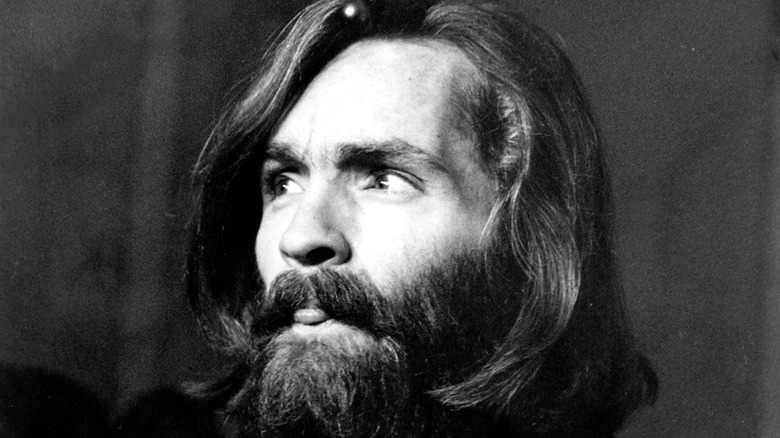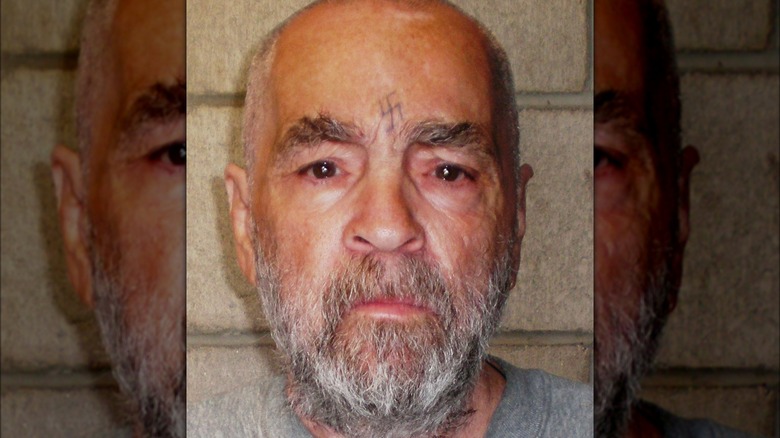Experts Share Insights On Charles Manson's Body Language During 1992 Parole Hearing
In April 1992, cult leader and convicted killer Charles Manson appeared before a California parole board. It was his eighth bid for freedom since his conviction for masterminding the brutal murders of at least nine people, including actor Sharon Tate, who was pregnant at the time of her grisly death at the hands of Manson's followers in 1969. In the two-hour hearing, Manson seemed articulate at times but also rambled on aimlessly. Grunge.com tapped four body language experts to delve deeper into Manson's demeanor during the televised hearing that's available on YouTube.
These experts from the Center for Body Language — including its co-founder, Patryk Wezowski — determined Manson's body language, including micro-expressions, told a different story from his words. Manson exhibited fear, contempt, pride, sadness, and defiance as the three-member board questioned him. One significant response the experts found missing from Manson was any emotions tied to remorse. "Charles' non-verbal behavior in this parole interview shows no repentance for his crimes," Wezowski said. "He rather tries to push his own views of the events and shows contempt for the justice system."
Manipulation and contempt
From the start of the hearing, Charles Manson attempts to use manipulation on the parole board members. "I'm a little nervous," he tells them. "I've been a long time sitting in a cell. I'm not used to people that much," he added moments later. His words apparently belie his body language. "I don't feel his behavior is genuine, I feel that he is trying to come across as a victim," Elena Petrescu, a Center for Body Language trainer in Spain, said. "He wants to portray himself as a victim here, wants people to feel sorry for him and for him to be relatable. During the interview he tries to be convincing and manipulative at times."
Further into the proceedings, Manson allegedly masks his emotions — including feelings of contempt for the parole board members — with a smile. "It is important to remember that smiling is the most common form of behavior used when trying to hide emotions," Serkan Tunc, a Center for Body Language trainer from Turkey, pointed out.
Charles Manson showed a lack of remorse
Charles Manson's hidden emotions ran the gamut, but all the experts agreed that he never showed anything resembling remorse for the brutal murders executed on his orders. "In general terms and observing his defiant attitude, it is noticeable his lack of emotions that show any form of repentance for his crimes," Juan Carlos Garcia, a Center for Body Language trainer from Panama, said. But Manson's expressions did apparently reflect that he believed what he was saying during the hearing. "It is interesting to see, just like in other criminal cases, that the criminal believes his own views strongly, which is reflected congruently by his facial expressions," Wezowski said.
At the end of the hearing, the board denied Manson's parole. At the time he was 57. "The chances are between slim and none that Charlie will ever get out of prison alive," the Los Angeles prosecutor Stephen Kay told the Gannett News Service before the hearing. He was right. Manson died in prison at age 83 on November 19, 2017.

